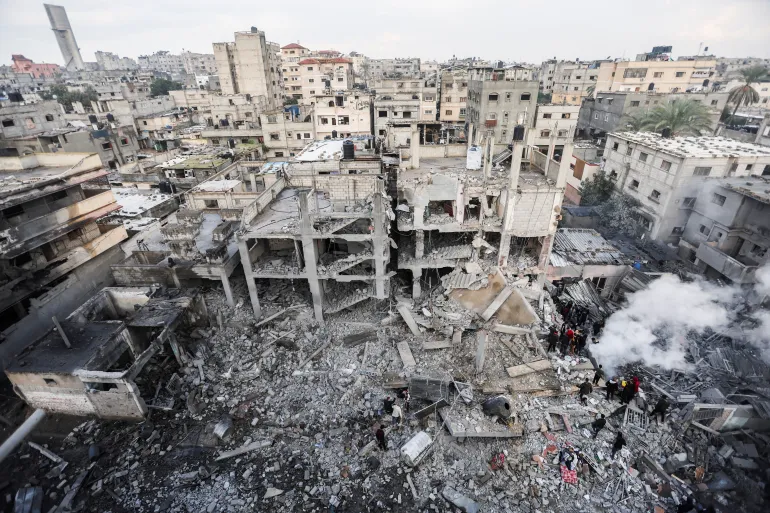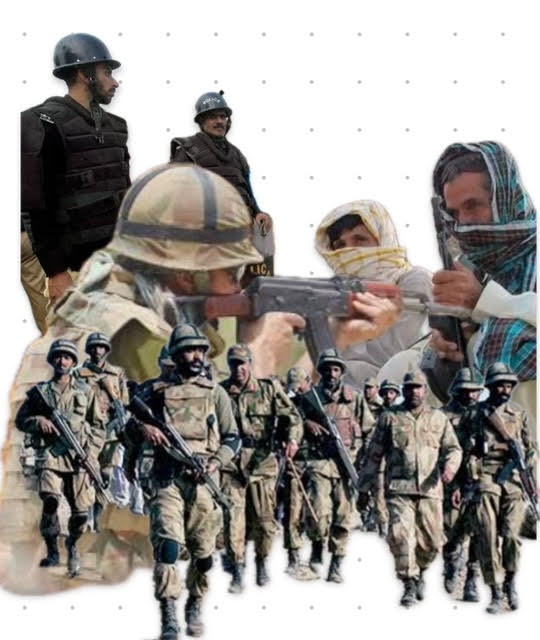Dr. Naveed Elahi
Samuel Huntington might not have anticipated the “clash of civilizations” to unfold so quickly and intensely, as seen in today’s geopolitical landscape. The year-long Israel-Hamas war has reached a perilous tipping point, with significant regional and global implications. Israel’s aggressive, unrestrained military actions have drawn Lebanon, Iran, and the Houthis into the conflict. The sharp reactions from the so-called “three H’s” – Hamas, Hezbollah, and Houthis – alongside Iran, have further inflamed the situation. The killing of Hezbollah leader Hassan Nasrallah was avenged by a barrage of Iranian missiles targeting Israeli military installations, setting the stage for a broader conflict.
Prime Minister Netanyahu’s relentless military campaigns have brought the world dangerously close to World War III. Initially, Iran sought to avoid direct confrontation, but following Israel’s continued provocations, including its invasion of Lebanon, Tehran retaliated with a show of force. Israel likely anticipated some asymmetrical response through the proxies after Hamas leader Ismail Haniyeh was killed in Tehran, but perhaps not the full-scale missile barrage that followed the death of Hassan Nasrallah. Hezbollah’s response has been more subdued, but the occasional rocket fire from the Houthis adds complexity to Israel’s predicament. Even the U.S. strikes on Yemeni drone and missile sites have not succeeded in stopping Houthi attacks on ships in the Red Sea. Reports suggest that the Houthis have proven skilled at concealing and relocating their launchers.
Iran appears to have achieved its short-term objective with its “Sadiq-2” operation, pushing both Israel and the U.S. to reconsider their aggressive strategies. Washington may not want Israel to escalate the conflict, particularly by targeting Iran’s oil infrastructure, which could disrupt global energy markets. At the onset of the Israel-Gaza conflict, the World Bank had warned that the war could lead to a global economic “shock,” potentially sending oil prices soaring to $150 per barrel and pushing millions into food insecurity. Like the 1973 oil crisis, such an event could have far-reaching repercussions, particularly if oil supplies are disrupted.
Israel, meanwhile, finds itself in a difficult position. It must weigh the risks of escalating the conflict with a nation-state while grappling with the threat posed by its non-state adversaries, who continue to bleed Israel through smaller, targeted thousand cuts. Iran has made it clear that it will no longer practice “unilateral restraint” and is prepared to respond with unconventional tactics should Israel strike its core infrastructure. This precarious balance could spiral into a broader regional conflict.
Pakistan, as Iran’s neighbor and a staunch supporter of the Palestinian cause, has taken a cautious approach during this year-long conflict. While Arab nations have largely refrained from taking bold stances, Pakistan has maintained its principled support for Palestine. However, ahead of the Shanghai Cooperation Organisation (SCO) Summit, scheduled for mid-October, Prime Minister Shehbaz Sharif has adopted a stronger stance on the conflict.
An All-Parties Conference (APC) was held at Aiwan-i-Sadr, hosted by President Asif Ali Zardari and Prime Minister Shehbaz Sharif, to show solidarity with the Palestinian people. Key political figures from major parties participated in it and condemned Israel’s actions, warning that its brutality could destabilize the region. Both leaders called on the international community to take immediate action against Israel’s atrocities, which have resulted in the deaths of over 41,000 Palestinians. PML-N President Nawaz Sharif also strongly condemned Israel’s barbarism, particularly against women and children.
Earlier in July, at the SCO and SCO Plus summits in Astana, Prime Minister Shehbaz Sharif had urged the international community to hold Israel accountable for the genocide of Palestinians, citing the International Court of Justice’s classification of Israel’s actions as genocide. This stance is in line with the policies of Quaid-e-Azam Muhammad Ali Jinnah, who consistently supported the Palestinian cause. However, Pakistan must tread carefully, keeping a close eye on developments to protect its own economic and security interests.
The upcoming SCO summit in Pakistan this month offers another opportunity for Islamabad to emphasize the conflict’s broader implications. The ongoing war poses a serious threat to the economic and security interests of SCO members, including Russia, China, and Central Asian countries. Pakistan can work to unify these nations in condemning Israel’s brutal war and push for a resolution to ensure an immediate ceasefire. It is high time to control escalation. Brinkmanship can make it happen.
It is imperative for all to realise that the escalating violence is a dire threat to regional peace. Besides killing of 41,000 Palestinians in Israeli bombings and ground attacks, Israel’s killing spree in Lebanon shows no signs of abating. Simultaneously, Iran and Israel are teetering on the edge of open conflict. Hamas, Houthis, and Hezbollah are not backing down, while the U.S. and Western powers seem reluctant to pressure Israel into stopping its military campaign. This war could easily extend beyond its current theater, with serious implications for regional stability and Pakistan’s economic security. Pakistan must brace itself for the impact of the conflict as it edges closer to its borders, ensuring that it remains diplomatically active and militarily alert to safeguard its own interests.
The author is Chief Editor of The Strategic Brief




